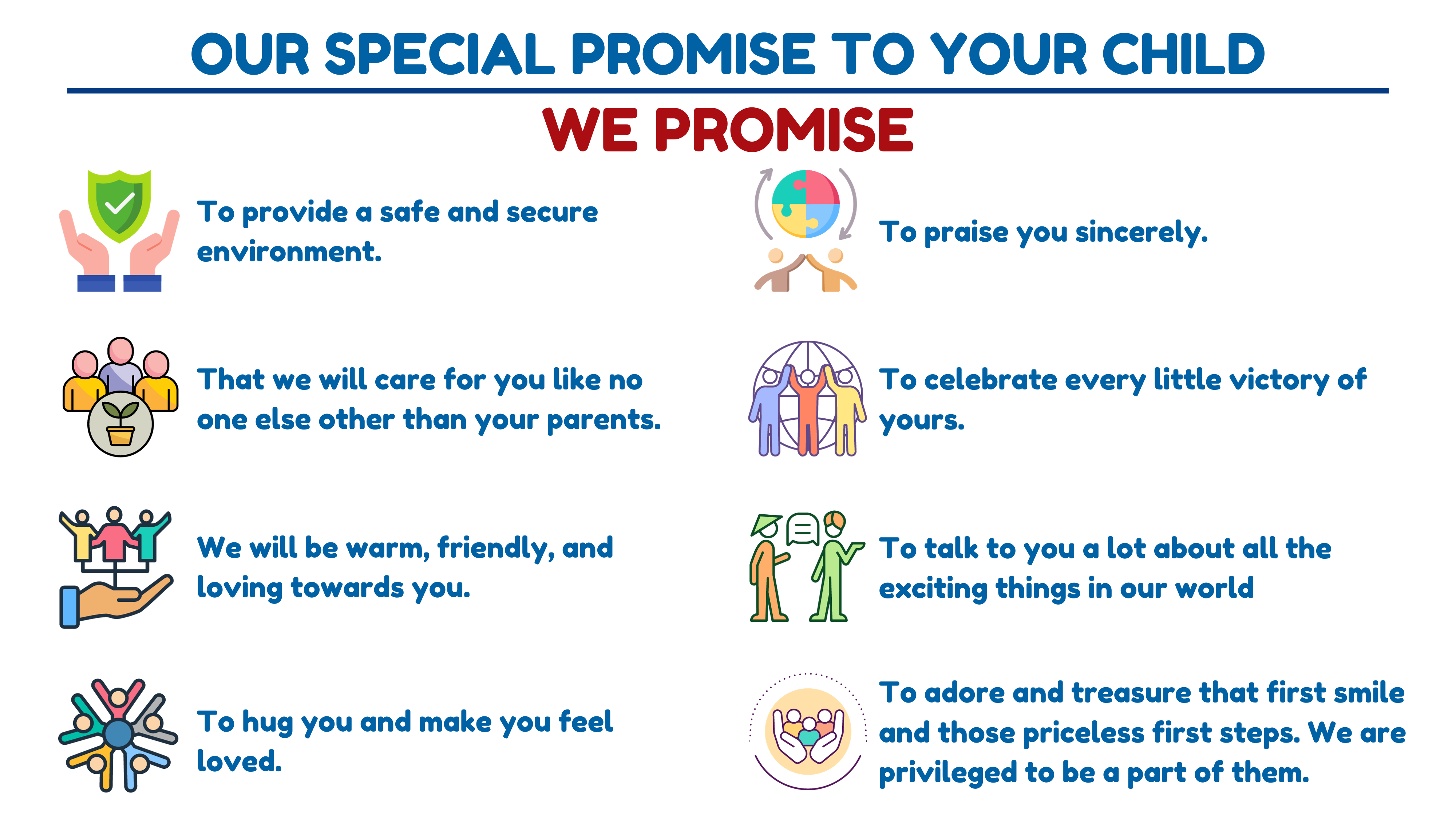QUESTIONS?
General Questions
Q: What are your hours of operation?
We are open 5:30 a.m. to 6:30 p.m. Monday through Friday, providing flexible childcare options to accommodate busy schedules.
Q: What age children do you accept?
We proudly accept children aged 6 weeks to 12 years, offering a nurturing environment for infants, toddlers, preschoolers, and school-aged children.
Q: Do you offer transportation to local elementary schools?
Yes, we provide safe and convenient transportation to and from nearby elementary schools. Our air-conditioned buses equipped with seat belts ensure a comfortable journey for the children.
Q: Can I observe my child?
Absolutely! We have an open-door policy that encourages parents to visit and observe their child’s classroom at any time without prior notice. Your presence is valued and welcomed.
Q: Do you provide meals and snacks?
Yes, we prioritize the nutrition and well-being of our children. Our center features a fully equipped commercial kitchen where our professionals prepare hot, nutritious meals and healthy snacks following USDA guidelines.
Q:Do children go outside every day?
Yes, our belief in the importance of outdoor activities is deeply ingrained. Weather permitting, children have daily opportunities to engage in outdoor play, nature walks, picnics, and other enriching experiences – our playgrounds are considered an extension of our classrooms.
Q:What security measures are taken when releasing children?
Our Quality Assurance requires we have a written procedure.
With a parent or guardian’s permission only, a child may be released to an alternate caregiver who presents two forms of identification (one must be a picture ID).
Q: Is your staff trained?
We hire the best professionals in child care. Whenever possible we have recruited teachers who have taught gifted and talented classes. We have spent many hours providing our teachers with additional training in our specially designed curriculum. Our teachers are not only equipped to enhance your child’s development but they truly care about all children. Our teachers work hard to provide a safe, loving and educationally-stimulating environment.We hire the best professionals in child care. Whenever possible we have recruited teachers who have taught gifted and talented classes. We have spent many hours providing our teachers with additional training in our specially designed curriculum. Our teachers are not only equipped to enhance your child’s development but they truly care about all children. Our teachers work hard to provide a safe, loving and educationally-stimulating environment.
Q: Tell us more about your curriculum and how it relates to the child’s development?
Within the last decade, scientists have made exciting breakthroughs in understanding how the human brain develops and works. Some of the research findings are particularly relevant to parents and teachers of young children:
The brain actually builds itself. Each sensory experience: what a child sees, hears, touches, tastes, and smells creates connections (synapses) between brain cells. Repeated experiences solidify these connections and promote understanding.
The early years are critical for brain development. By age 10, the brain has formed most of the connections it will use throughout life. Nurturing, supportive, and consistent relationships early in life wires the brain for learning and loving.
The brain is most receptive to learning language during the first 10 years of life. The child’s vocabulary increases as the child hears more language.
Learning comes through all the senses, and language develops in the context of meaningful interactions with adults and other children. The more senses involved, the more solid the learning.
Movement is critical to brain activity. When the hands are active, the brain is more engaged. Therefore, “hands-on” learning, building with blocks, drawing and painting, fitting puzzles together, exploring materials, acting out an experience actually activates the brain.
Music enhances brain development, especially spatial orientation and the ability to think mathematically. A good time to encourage music experiences is during the preschool years.
Research has also shown that early childhood education is failing students around the world, not in its ability to deliver crucial instruction to children but in its ability to deliver learning when they are needed most, and delivering through all the senses.
If you have any other questions give us a call and we will be happy to talk.

